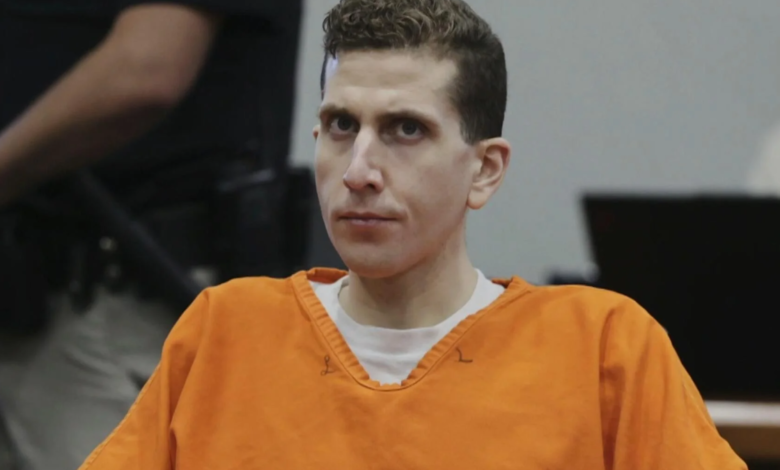Who is Bryan Kohberger? A Deep Dive into a Chilling Case

A comprehensive and expert-written article on Bryan Kohberger, the Idaho murders, legal developments, and public reactions. Explore the case’s background, impact, and ongoing discussions.
Introduction to Bryan Kohberger
Bryan Kohberger has become a central figure in one of the most talked-about criminal cases in recent years. If you’ve been keeping up with true crime stories or even just watched the news in passing, you’ve probably heard the name. The case surrounding Bryan Kohberger is as chilling as it is mysterious, and it’s captivated millions of people across the U.S. and beyond. So who exactly is he, and why has he drawn so much attention?
Bryan Kohberger was a relatively unknown criminology student before he became a suspect in the brutal murders of four University of Idaho students. The murders rocked a small community and sent shockwaves across the country. The more people learned about the case, the more questions seemed to arise. From his background in criminal justice to the minute details of the crime scene, everything about this story feels like it’s straight out of a psychological thriller.
The Man Behind the Name: Bryan Kohberger’s Background
Bryan Kohberger wasn’t always the center of a nationwide investigation. In fact, he had a quiet upbringing in Pennsylvania, showing early signs of academic interest, especially in criminology and psychology. Friends and acquaintances have described him as intelligent, albeit somewhat socially distant. He pursued his academic career with intensity, eventually enrolling in a PhD program in criminology at Washington State University.
What makes Bryan Kohberger’s story even more intriguing is how deeply involved he was in studying criminal behavior. He was passionate about the psychology of criminals, often discussing theories and cases in academic settings. He even conducted surveys asking criminals about their thoughts during crimes, which, in hindsight, adds a bizarre layer to the events that unfolded. For someone who was supposed to understand crime to its core, it’s unsettling to imagine he could be involved in such a heinous act.
The Crime That Shocked the Nation
The murders took place in November in the quiet college town of Moscow, Idaho. Four students—Kaylee Goncalves, Madison Mogen, Xana Kernodle, and Ethan Chapin—were found brutally stabbed in their off-campus home. The scene was horrific, and the lack of immediate suspects or motives only added to the public’s unease. For weeks, the community and the nation waited for answers.
As investigators combed through evidence, surveillance footage, and cellphone records, the puzzle pieces slowly began to form a picture. Bryan Kohberger’s name eventually surfaced through a combination of forensic evidence, digital tracking, and behavioral analysis. The fact that he was a criminology student made the revelations even more disturbing. People began questioning whether his education helped him plan and commit the crime.
The Investigation Process
One of the most riveting aspects of this case was the intense and meticulous investigation that led to Bryan Kohberger’s arrest. Law enforcement agencies from different jurisdictions collaborated in a rare show of unity. They sifted through mountains of data, interviews, and digital footprints to find the person responsible.
Bryan Kohberger became a person of interest after police traced a white Hyundai Elantra seen near the crime scene. From there, they obtained search warrants, collected DNA samples, and analyzed cellphone data. Ultimately, it was a DNA match on a knife sheath left at the scene that linked him to the crime. The precision of the investigation has been both praised and criticized, with many highlighting it as a textbook case of modern forensics.
The Role of Criminology in the Case
This case stands out not just for the brutality of the crime, but also for the suspect’s background. Bryan Kohberger’s extensive study in criminology has raised questions about whether his knowledge helped him evade law enforcement initially. It also brings up ethical dilemmas about how criminology students should be vetted and monitored.
What’s even more unsettling is that Kohberger had reportedly discussed certain criminal behaviors in class that mirrored elements of the crime. Some classmates and professors have come forward to express their shock, recalling eerie conversations and essays that now seem suspicious in retrospect. Was he studying to understand criminals, or to become one?
Public Reaction and Media Frenzy
The media attention surrounding Bryan Kohberger has been enormous. From mainstream news outlets to true crime YouTube channels and Reddit threads, the case has been dissected from every angle. Public opinion has been divided, with some demanding swift justice and others urging a fair trial.
What’s clear is that Bryan Kohberger has become a symbol of how easily a seemingly normal individual can be hiding something dark. Social media platforms have been buzzing with theories, speculations, and amateur sleuthing. While this has helped keep attention on the case, it has also raised concerns about misinformation and online harassment.
Legal Proceedings and Current Status
As of now, Bryan Kohberger is in custody and awaiting trial. He has been charged with multiple counts of first-degree murder and one count of felony burglary. His defense team has started building a case, and the legal battle ahead promises to be intense. The court has issued gag orders, limiting what can be shared publicly.
This has created a sort of information vacuum, leading to even more speculation. People are wondering what kind of defense he’ll present, whether there will be a plea deal, or if the case will go to a full trial. Legal analysts suggest that the prosecution has a strong case, but nothing is guaranteed until the jury decides.
The Victims and Their Legacy
While a lot of the focus has been on Bryan Kohberger, it’s crucial to remember the victims. Kaylee, Madison, Xana, and Ethan were beloved by friends, family, and their community. They were young, full of potential, and had their lives brutally cut short.
Vigils, memorials, and fundraisers have been held in their honor. The university and local community have shown immense support for the families, and scholarships have even been established in the victims’ names. Their legacy continues to be a source of strength and unity.
Community Impact and Healing

The community of Moscow, Idaho, has been deeply affected by this tragedy. It’s a small, close-knit town where violent crime is rare. The shock of the murders created an atmosphere of fear and sadness that is still palpable.
Counseling services, increased security, and public forums have been part of the healing process. Residents have shown resilience, coming together to support each other and demand justice. The long-term psychological impact will likely be studied for years, especially in small-town settings.
Internet Sleuthing and Ethics
One fascinating aspect of this case is the rise of amateur internet detectives. Platforms like Reddit and TikTok have been flooded with theories, suspect lists, and even map breakdowns of the crime scene. While some contributions have been helpful, others have spread misinformation and even targeted innocent people.
This raises ethical questions about the role of the public in criminal investigations. Should people be allowed to investigate crimes from their living rooms? What happens when speculation causes real-world harm? Bryan Kohberger’s case is now a textbook example of how powerful—and potentially dangerous—online sleuthing can be.
What’s Next in the Case?
As we wait for the trial, many are wondering what new information will come to light. Will more evidence be revealed? Could there be accomplices? Is there a deeper motive that hasn’t yet been uncovered? The legal process will answer some of these questions, but others may remain mysteries forever.
Bryan Kohberger has pleaded not guilty, and the burden of proof lies with the prosecution. The trial is expected to be lengthy and emotionally charged. For many, it’s not just about this one case—it’s about justice, safety, and understanding how something so horrific could happen.
Table: Timeline of Events
| Date | Event |
|---|---|
| November | Murders take place in Idaho |
| December | Bryan Kohberger becomes a suspect |
| January | Arrest made in Pennsylvania |
| February–Present | Pre-trial hearings and evidence collection |
Quote on the Case
“Criminology isn’t just about studying crime; it’s about understanding the minds behind it. This case forces us to ask—how well do we truly understand those minds?”
FAQs About Bryan Kohberger
Who is Bryan Kohberger?
Bryan Kohberger is a criminology PhD student who has been charged with the murders of four University of Idaho students. His background in criminal justice has made this case particularly chilling.
What evidence links Bryan Kohberger to the crime?
Key evidence includes DNA found on a knife sheath at the scene, cellphone tracking, and surveillance footage of his vehicle near the crime scene.
Has Bryan Kohberger gone to trial?
As of now, he is awaiting trial. Pre-trial hearings have been ongoing, and the legal process is still unfolding.
Why is this case getting so much attention?
The combination of a horrific crime, a suspect with a criminology background, and the mystery surrounding the events has captured public interest globally.
What’s the impact on the community?
The town of Moscow, Idaho, has been deeply affected. Increased security and counseling services have been introduced, and the healing process continues.
Conclusion
The story of Bryan Kohberger is far from over, and its implications will likely ripple through criminology, law enforcement, and public discourse for years to come. As the trial approaches, the world continues to watch closely, hoping for justice and answers. The victims’ families deserve closure, and the public deserves transparency. One thing is certain—this case will not be forgotten.





